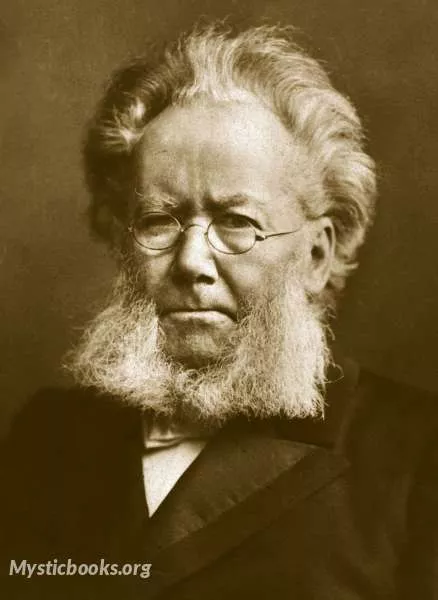
Timeline
Title
Country/Nationality
Henrik Ibsen
Henrik Johan Ibsen was a Norwegian playwright and theatre director. As one of the founders of modernism in theatre, Ibsen is often referred to as "the father of realism" and one of the most influential playwrights of his time. His major works include Brand, Peer Gynt, An Enemy of the People, Emperor and Galilean, A Doll's House, Hedda Gabler, Ghosts, The Wild Duck, When We Dead Awaken, Rosmersholm, and The Master Builder. Ibsen is the most frequently performed dramatist in the world after Shakespeare, and A Doll's House was the world's most performed play in 2006.
Ibsen's early poetic and cinematic play Peer Gynt has strong surreal elements. After Peer Gynt Ibsen abandoned verse and wrote in realistic prose. Several of his later dramas were considered scandalous to many of his era, when European theatre was expected to model strict morals of family life and propriety. Ibsen's later work examined the realities that lay behind the facades, revealing much that was disquieting to a number of his contemporaries. He had a critical eye and conducted a free inquiry into the conditions of life and issues of morality. In many critics' estimates The Wild Duck and Rosmersholm are "vying with each other as rivals for the top place among Ibsen's works"; Ibsen himself regarded Emperor and Galilean as his masterpiece.
Ibsen is often ranked as one of the most distinguished playwrights in the European tradition, and is widely regarded as the foremost playwright of the nineteenth century. He influenced other playwrights and novelists such as George Bernard Shaw, Oscar Wilde, Arthur Miller, James Joyce, Eugene O'Neill, and Miroslav Krleža. Ibsen was nominated for the Nobel Prize in Literature in 1902, 1903, and 1904.
Ibsen wrote his plays in Danish (the common written language of Denmark and Norway during his lifetime) and they were published by the Danish publisher Gyldendal. Although most of his plays are set in Norway—often in places reminiscent of Skien, the port town where he grew up—Ibsen lived for 27 years in Italy and Germany, and rarely visited Norway during his most productive years. Ibsen's dramas were informed by his own background in the merchant elite of Skien, and he often modelled or named characters after family members. He was the father of Prime Minister Sigurd Ibsen. Ibsen's dramas had a strong influence upon contemporary culture.
Books by Henrik Ibsen
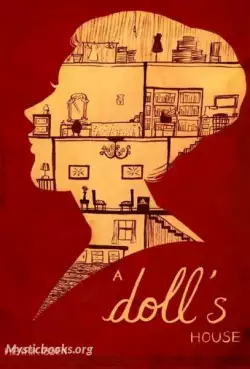
A Doll's House
A Doll's House is a three-act play written by Norwegian playwright Henrik Ibsen. It premiered at the Royal Theatre in Copenhagen, Denmark, on 21 December 1879, having been published earlier that month. The play is set in a Norwegian town circa 1879....
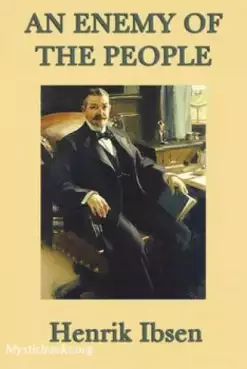
An Enemy of the People
An Enemy of the People, an 1882 play by Norwegian playwright Henrik Ibsen, followed his previous play, Ghosts, which criticized the hypocrisy of his society's moral code. Ibsen, Ellen Mortensen (Ibsen Studies v.7, 169) argues, wrote An Enemy of the P...
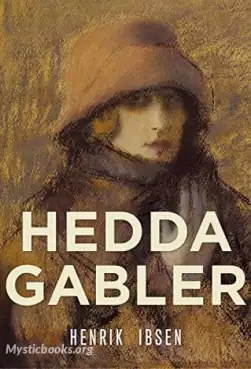
Hedda Gabler
Hedda Gabler is a play written by Norwegian playwright Henrik Ibsen. The world premiere was staged on 31 January 1891 at the Residenztheater in Munich. Ibsen himself was in attendance, although he remained backstage. The play has been canonized as a...
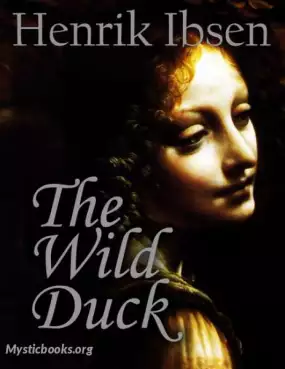
The Wild Duck
The Wild Duck is an 1884 play by the Norwegian playwright Henrik Ibsen. It is considered the first modern masterpiece in the genre of tragicomedy. The Wild Duck and Rosmersholm are "often to be observed in the critics' estimates vying with each other...
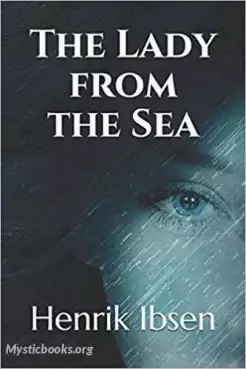
The Lady From the Sea
The Lady from the Sea is a play written in 1888 by Norwegian playwright Henrik Ibsen inspired by the ballad Agnete og Havmanden. The drama is notable in the Ibsen corpus for introducing the portrayal of Hilde Wangel who is again portrayed in Ibsen's...
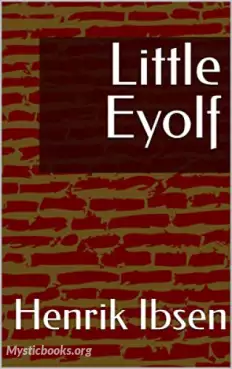
Little Eyolf
Little Eyolf tells the story of the Allmers family. At the outset of the play, the father, Alfred, has just returned from a trip to the mountains. While there, he resolved to focus foremost on raising his son Eyolf, rather than continue work on his b...
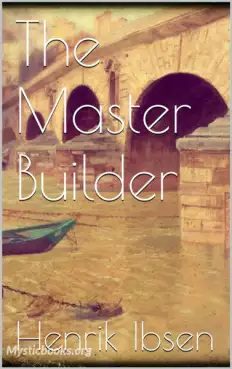
The Master Builder
Henrik Ibsen's The Master Builder, first published in 1892, is about architect Halvard Solness, who despite personal tragedy (including the death of his two sons) has risen to the top of his profession. He has succeeded partly through ruthless compet...
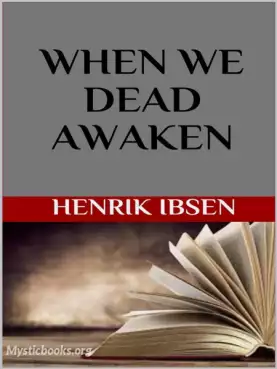
When We Dead Awaken
The first act takes place outside a spa overlooking a fjord. Sculptor Arnold Rubek and his wife Maia have just enjoyed breakfast and are reading newspapers and drinking champagne. They marvel at how quiet the spa is. Their conversation is lighthearte...
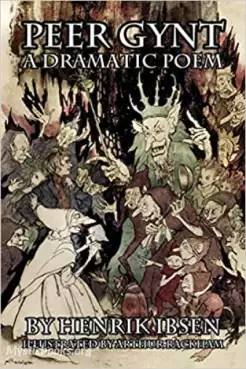
Peer Gynt
Peer Gynt is the most well known Norwegian play throughout history and is based loosely on the folklore about Per Gynt. It is a dramatic poem in five acts, and has been aptly described as the story of a life based on procrastination and avoidance. Th...
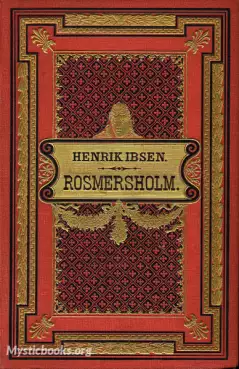
Rosmersholm
Rosmersholm is a play written by Norwegian playwright Henrik Ibsen in Danish—the common written language of Denmark and Norway at the time—and originally published in 1886 in Copenhagen by the Danish publisher Gyldendal. Rosmersholm has been describe...
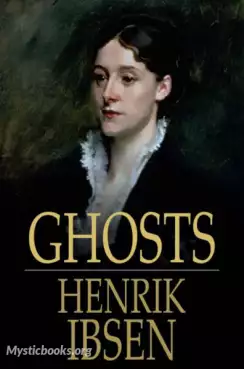
Ghosts
Ghosts is a play by the Norwegian playwright Henrik Ibsen. It was written in 1881 and first staged in 1882 in Chicago, Illinois, in a production by a Danish company on tour. Like many of Ibsen's plays, Ghosts is a scathing commentary on 19th-century...

Un enemigo del pueblo
"Un enemigo del pueblo" de Henrik Ibsen es un drama cautivante que explora los oscuros matices de la verdad y la integridad en una sociedad que prefiere la comodidad a la revelación. En un pequeño pueblo, un hombre valiente y comprometido, el Doctor...
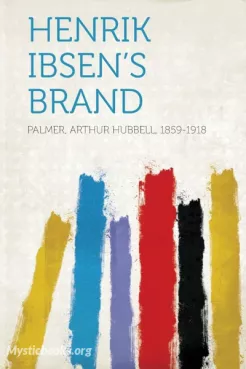
Brand
In the heart of a remote Norwegian fjord, a fervent and uncompromising pastor named Brand stands as a beacon of unwavering faith and unwavering dedication to his calling. Consumed by an insatiable desire to save the souls of his parishioners, Brand d...

John Gabriel Borkman
John Gabriel Borkman, a once prominent banker, is imprisoned after his financial schemes crumble, leaving him ostracized and consumed by guilt. Eight years later, he is released to a life of isolation and a family marked by bitter resentments. His wi...
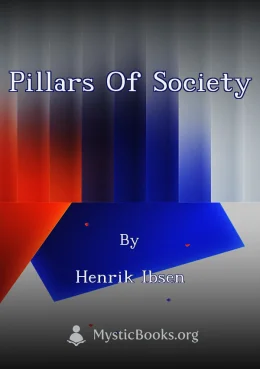
Pillars of Society
Pillars of Society is a realist drama set in a small Norwegian town. The central character, Karsten Bernick, is a successful businessman known for his philanthropy. However, his seemingly virtuous facade hides a web of secrets and lies. The arrival o...
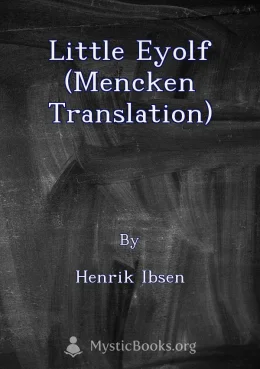
Little Eyolf (Mencken Translation)
Little Eyolf is a play by Henrik Ibsen that explores the complex and often painful dynamics within a family grappling with loss and grief. It delves into the psychological depths of its characters, revealing their hidden desires, insecurities, and vu...
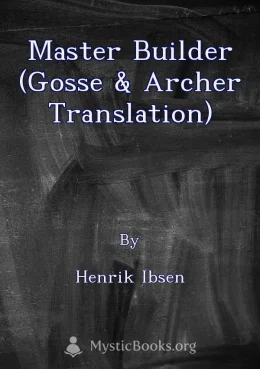
Master Builder (Gosse & Archer Translation)
The Master Builder follows Halvard Solness, a successful architect grappling with the consequences of his ambitious and ruthless rise to prominence. Haunted by guilt and fear, he struggles with his past choices, a gnawing feeling of being in league...
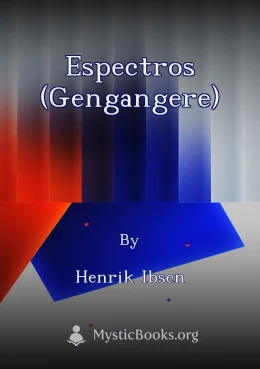
Espectros (Gengangere)
En "Espectros", Henrik Ibsen presenta una compleja trama centrada en la vida de Elena Alving, una viuda que enfrenta la verdad sobre el pasado de su difunto marido, Osvald, su hijo, y su propia complicidad en un secreto turbio. El descubrimiento de u...